12 Things You Need To Know About Narendra Modi, India’s New Prime Minister
The controversial new leader of the world’s largest democracy was selected by a landslide in the biggest elections of all time. Update – May 26: Narendra Modi has taken an oath as India’s 15th PM, and has officially been sworn in to office.
Update — May 26: Narendra Modi has officially been sworn in as Prime Minister of India.

On Friday, May 16, Narendra Modi of the Bharatiya Janata Party (BJP) was elected as India’s new prime minister after half a billion people voted in the country’s six-week-long election.
Modi, along with the rest of the nation, was confident of his victory:
Here’s what you need to know about the man set to lead 1.2 billion people for the next five years.
1. Narendra Modi is India’s 15th prime minister, winning the largest democratic election of all time, and securing the largest mandate any Indian prime minister has won since 1984.
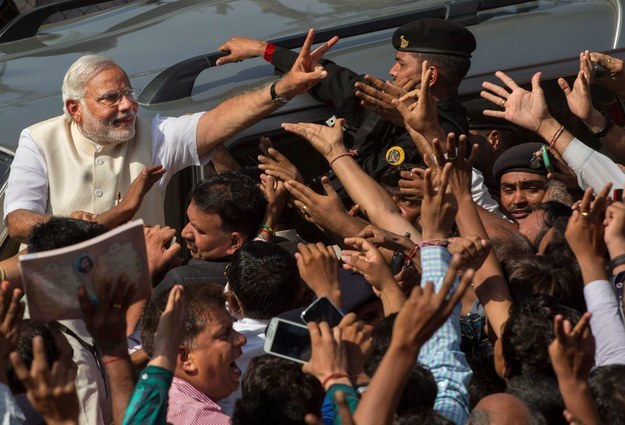
He is succeeding Prime Minister Manmohan Singh of the Congress Party, who was in power for 10 years and was widely criticized for his inaction. Modi defeated his competitor Rahul Gandhi in a landslide election.
2. Modi is a Hindu nationalist.
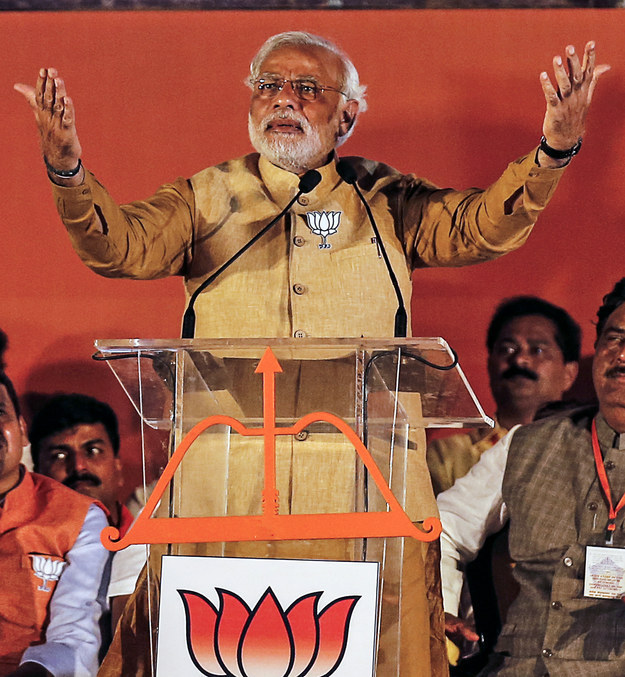
Modi’s political and cultural ideology stems from “Hindutva” – a hardline brand of Hindu nationalism – followed by his party, the BJP.
The BJP’s election manifesto specified that India will welcome “persecuted Hindus,” and vowed to build a temple on disputed grounds where a mosque was destroyed by right-wing Hindus. The BJP also plans to cut down beef exports as the cow is considered sacred to Hindus.
3. Narendra Modi is seen as pro-business and pro-development.
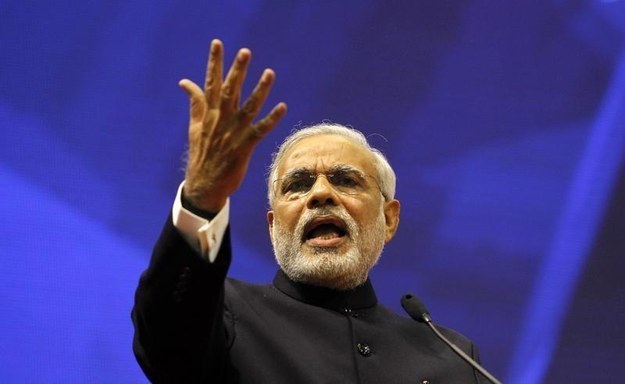
Modi has modeled himself as the “Development Man” and has been endorsed by some of the world’s richest Indian businessmen. He has attracted huge investments in his home state of Gujarat where the economy has grown 10% a year, higher than the Indian average, for much of the last decade.
Supporters credit him with improving infrastructure and governance, while detractors believe his pro-business agenda excludes poor minorities and ignores social problems.
4. Modi’s approach to women’s issues is unclear.
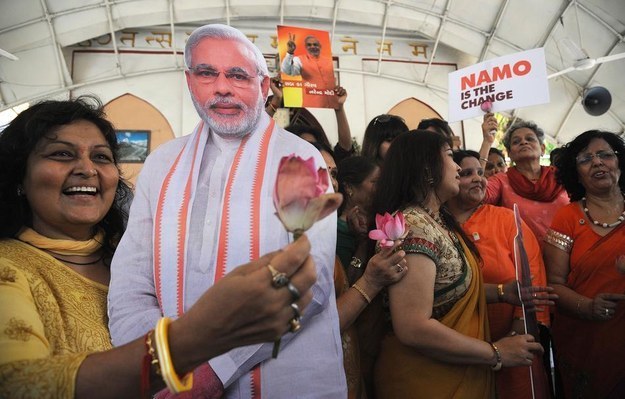
While BJP’s manifesto recognizes the importance of women’s development and security, his personal and political approach to women is ambiguous.
His wife of 46 years was kept a secret until now, his top aides are all men, he has only two women in his state cabinet of 19 ministers, and his state’s record on women’s issues is at best, mixed, and at worst, dismal.
5. Modi was denied a visa to the United States in 2005, but has been granted one since being elected Prime Minister.
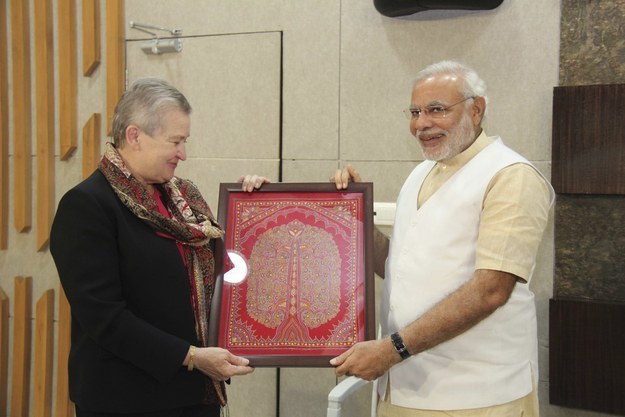
The U.S. government has denied Modi a visa since nine years for his failure as a leader of the state of Gujarat to stop deadly communal riots which killed over 1,000 people, mainly Muslims.
While Modi’s recent meeting with U.S. Ambassador to India Nancy Powell was an indicator of restoring U.S.–India ties, top American officials remained silent on the issue of his visa.
On the day of his election, the White House said Modi “will be welcomed” into the United States. He is now eligible for an A1 visa, which heads of states use to travel into the United States.
6. Modi loves technology, Twitter, and selfies.
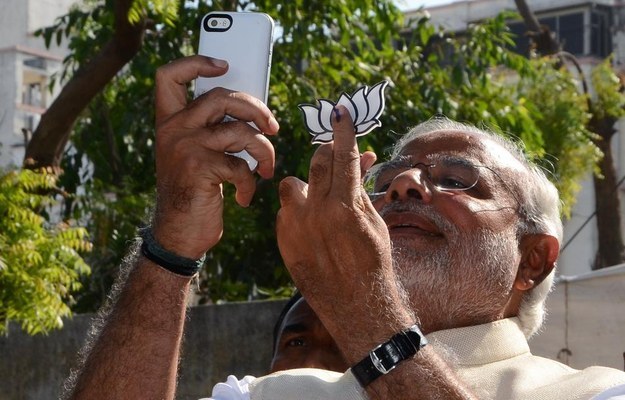
Social media and technology played a large role in Modi’s campaign. He is an avid tweeter with nearly 4 million followers. He joined the election selfie trend, he blogged, and he appeared as a hologram at several rallies in his efforts to portray the BJP as a progressive, technocratic party that can lead India into the 21st century.
Since being elected, Modi has tweeted at several heads of state and, so far, seems to be using social media to facilitate transparent decision-making.
7. Modi’s party thinks homosexuality is “unnatural.”
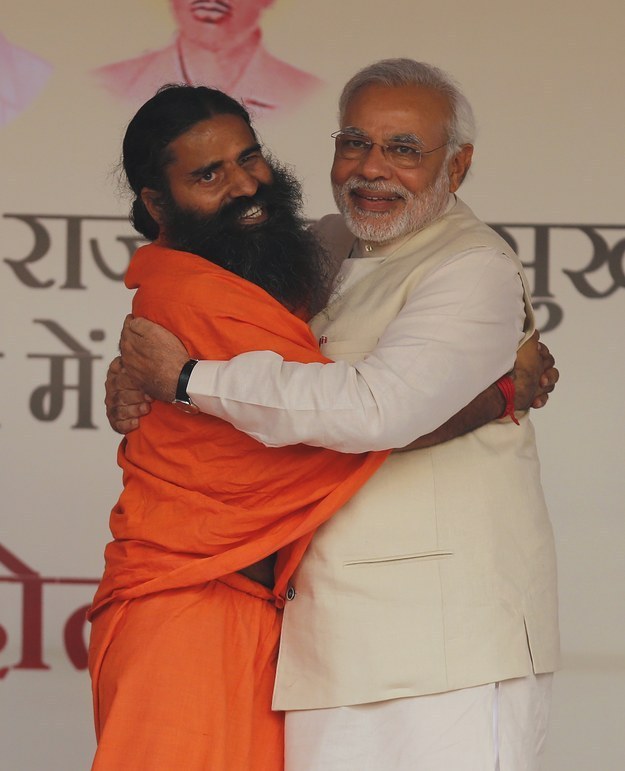
While Modi has been resolutely silent on the issue of homosexuality and LGBT rights, the BJP is the only major party to support the Supreme Court’s decision of recriminalizing homosexuality.
In the above picture, Modi hugging the Indian yoga guru Baba Ramdev who strongly believes that homosexuality is a disease he can cure.
8. Modi was chief minister of Gujarat during the western state’s 2002 communal riots in which hundreds of Muslims were killed.
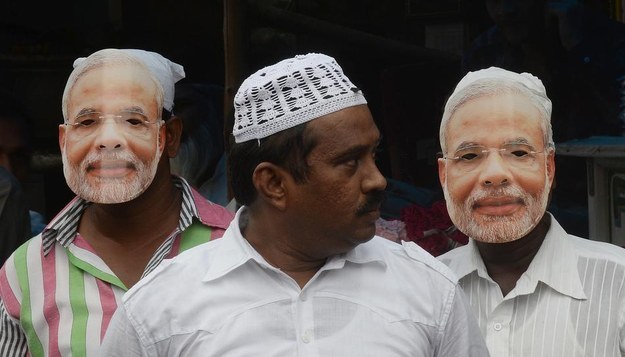
Modi was cleared of any wrongdoing in an investigation ordered by the Indian Supreme Court. However, he continues to be questioned by the liberal and international media about his failure to stop the horrific sectarian violence and his refusal to apologize for it.
In a 2002 New York Times interview, Modi said his only regret was that he did not handle the news media better.
9. Modi is a powerful orator and an articulate speaker.
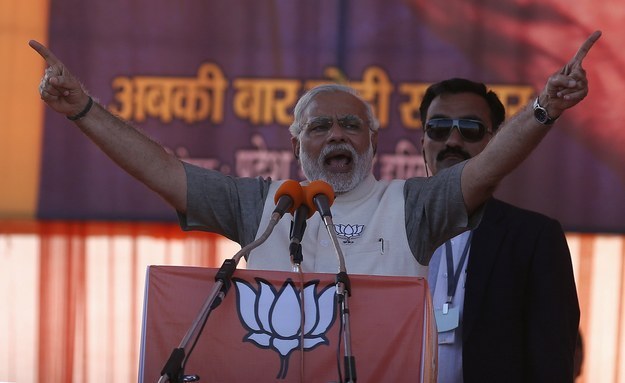
Modi’s provocative speeches and impactful delivery make him one of India’s most effective public speakers in politics. In interviews, he is measured and articulate. Although he understands English, he is not comfortable speaking it.
However, he has been criticized for his his unapologetic stance on the Gujarat riots, and for backing out of interviews that don’t align with his agenda.
10. Modi admires China and vice versa.
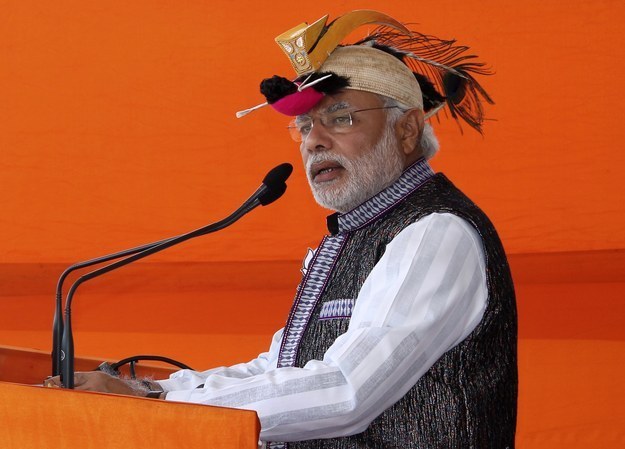
Modi visited China four times during his tenure as Gujarat’s chief minister and has successfully courted Chinese investments in the state. China expects Modi to be “pragmatic” and have a “more flexible” economic policy toward the country.
11. Modi has a thrilling backstory: from tea seller to prime minister.
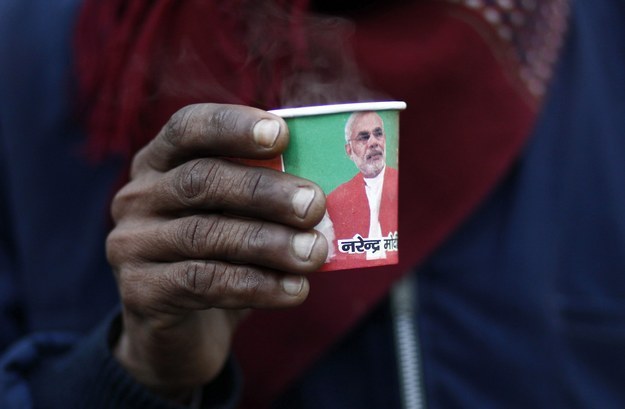
John Oliver recently spoke about Modi’s incredible rise to power, while berating the U.S. for ignoring the Indian elections: “Modi sold tea in a railway station, and now he’s the most popular man in the country — don’t pretend you’re not interested in this, America. Last time you heard a rags-to-riches story about a tea-selling Indian kid, you threw a fucking Oscar at it.”
12. Modi has become a cult-like figure, revered and reviled in equal measure.
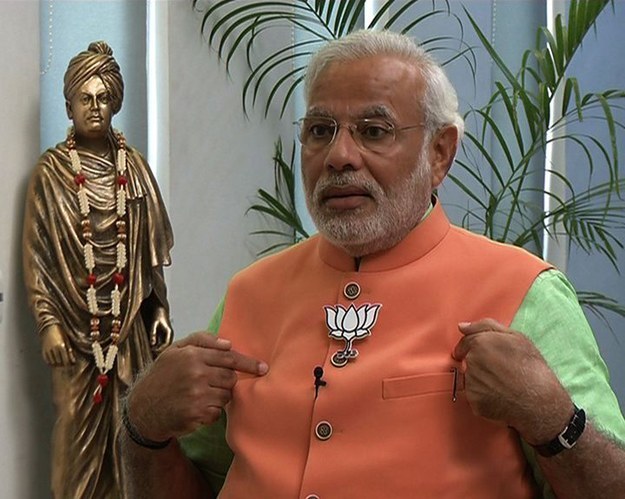
Modi has been India’s most divisive prime ministerial candidate. He is idolized by the majority of Hindus who form 80% of the country’s population and is well-respected for his decisive, business-like approach to politics.
He has also inspired fear and loathing among the country’s minorities, the liberal media, and left-leaning intelligentsia who view him as a dictatorial, conservative authoritarian.
You May Be Interested IN